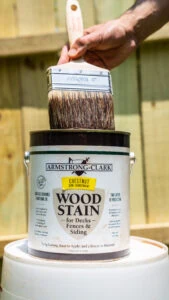Better late than never, the Oxford English Dictionary has finally added the word “DIY’er” to its official list of new words. As of March 2014, the wordsmiths in England have publicly recognized that folks like you and me exist.
DIY’er (n.): A person who engages in do-it-yourself activities; an amateur (in construction, repair, etc.).
By the way, according to oxforddictionaries.com, that’s how we’re supposed to spell it: DIY’er with an apostrophe (not DIYer). Leaving out the apostrophe could now cost you the spelling bee, and typing out the entire word do-it-yourselfer is so last year. Ain’t nobody got time for that.
According to conventional wisdom, it’s not until a word is officially entered into a dictionary that the word is deemed acceptable for formal use. I’ve never been a big fan of formalities or conventional wisdom, so we’ve been using the term DIY’er in the pages of Extreme How-To for well over a decade. I like to think that puts us ahead of the curve, with Oxford just now catching up.
Next in line should be Microsoft, because even as I type this blog, MS Word is highlighting DIY’er with a red squiggly line, indicating that it’s misspelled. Come on, Bill Gates, get with the program.
We DIY’ers proudly make our esteemed entrance into the English language with other dignified terms such as bathroom break, bestie, sciency, wackadoodle, and the verb form of toilet paper.
So, raise a glass, fellow DIY’ers. Give yourselves a hand and a pat on the back, for we have finally arrived.
— M. Weber




